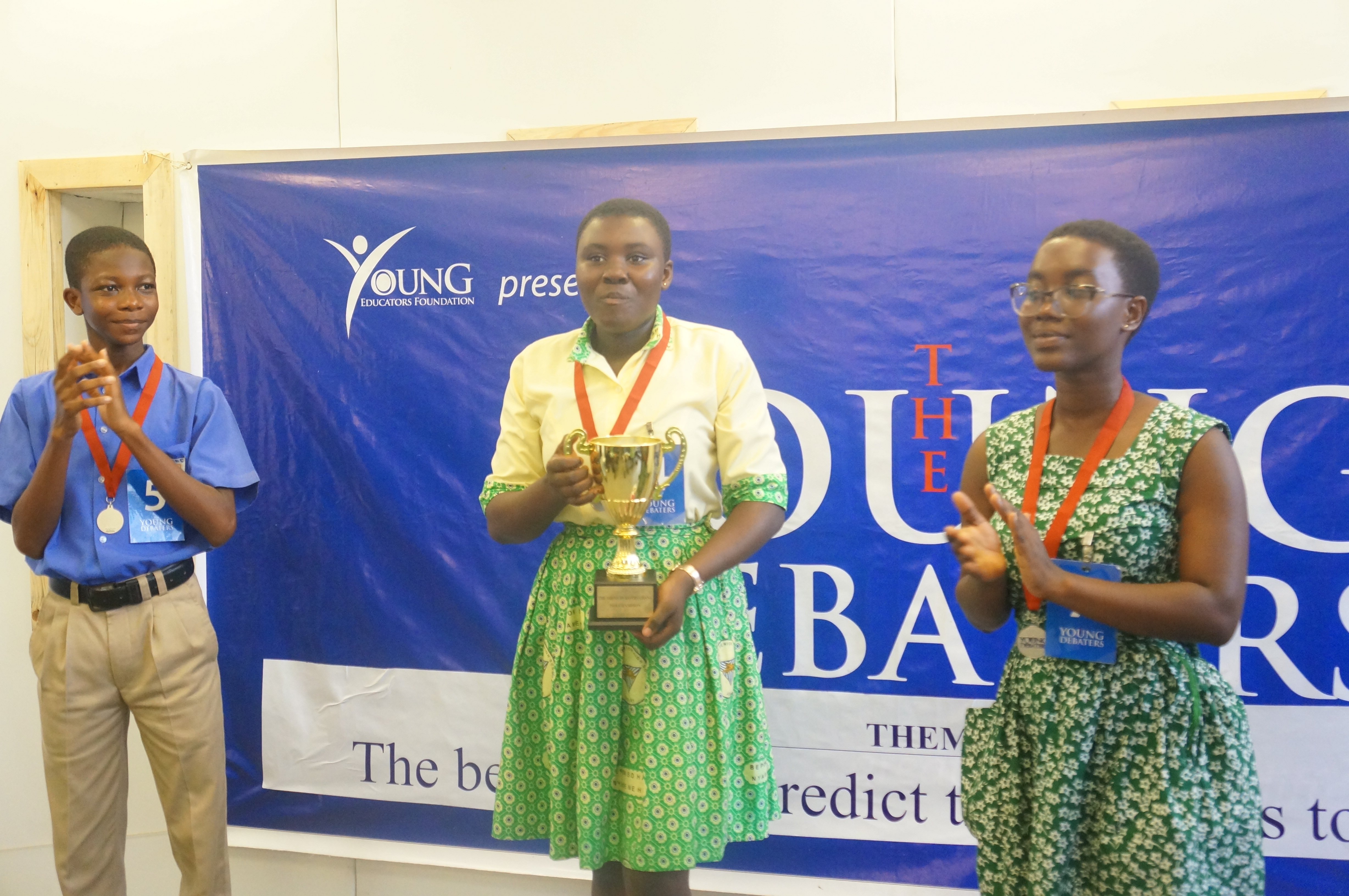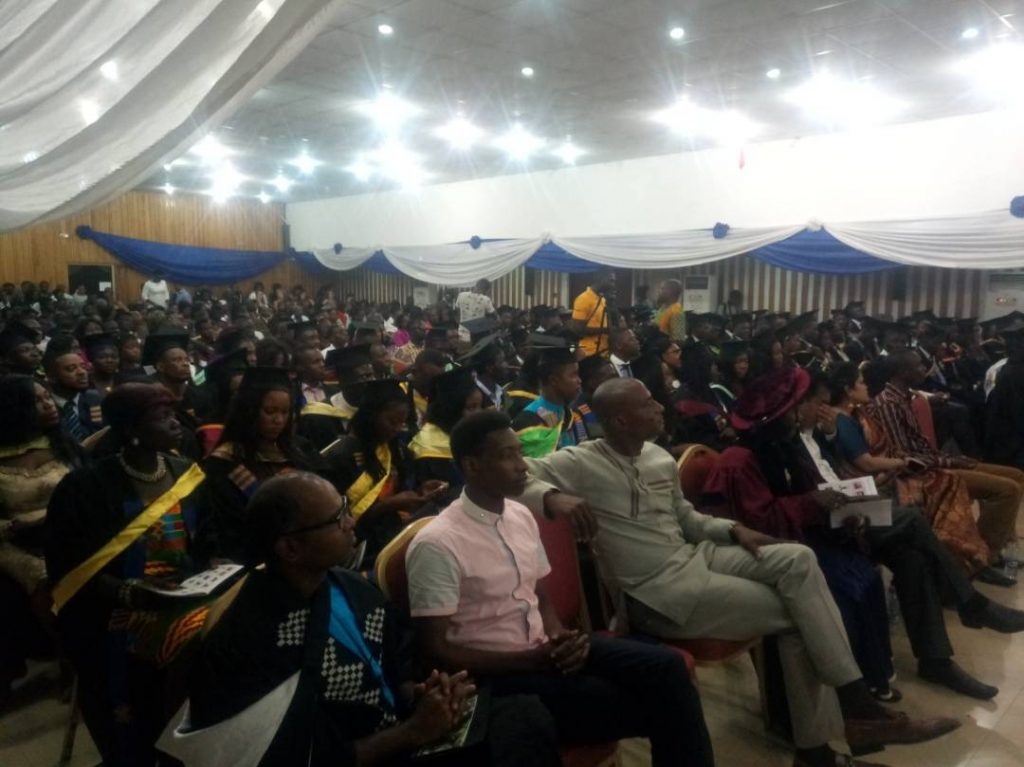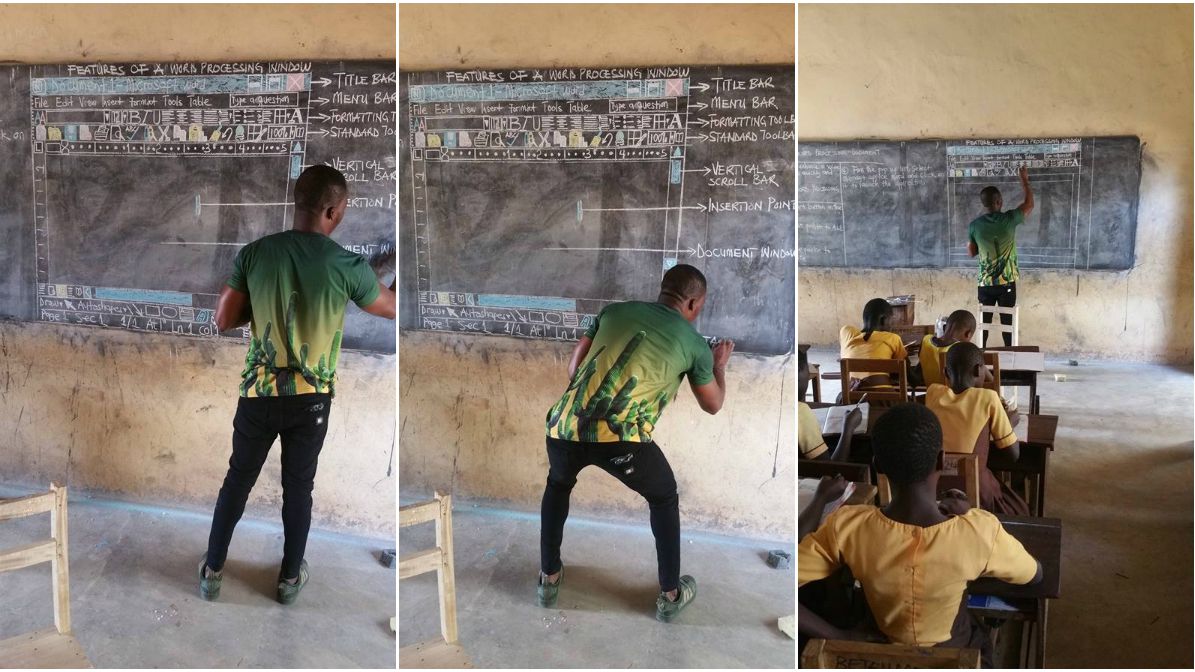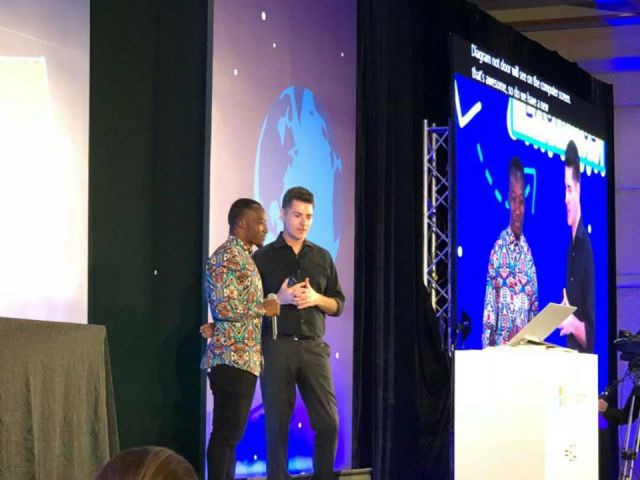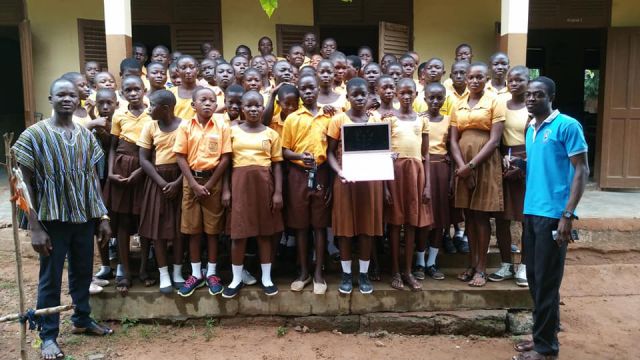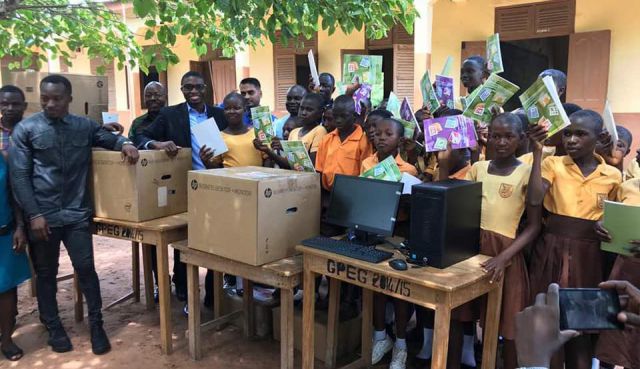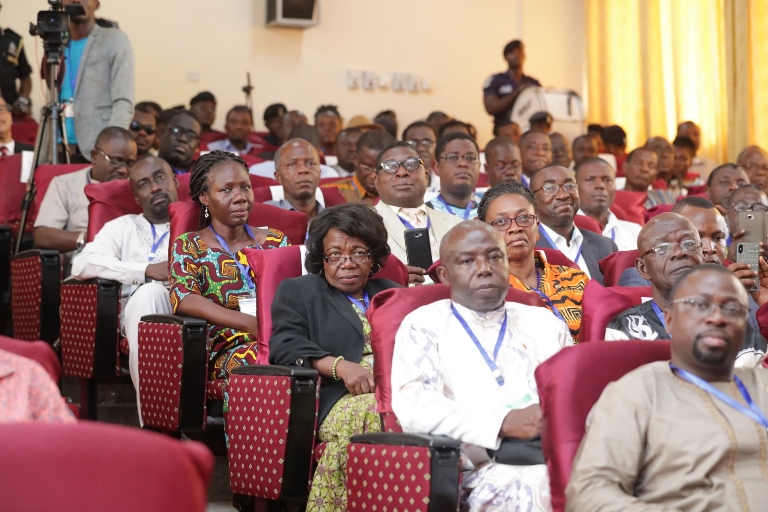A Senior Lecturer at the Department of Chemistry at the Kwame Nkrumah University of Science and Technology (KNUST), Richard Tia, has responded to the supposed damning claims made by veteran journalist and Managing Editor of the Insight newspaper Kwesi Pratt against the university.
Kwesi Pratt reportedly lambasted KNUST for not being able to produce a solar panel or provide any solution for the country’s energy problems, 50 years after its establishment.
“We have a University of Science and Technology which is more than 50 years but in the entire nation, we can’t construct a battery and solar panel…This is extremely disturbing…What happened to the Science and Technology?” Mr. Pratt reportedly said on Accra based Peace FM’s “Kokrokoo” show on Tuesday.
But the KNUST Lecturer, Richard Tia, who’s unhappy with the assertion has rubbished same in a detailed article.
“I am not sure I know what Mr. Kwesi Pratt wants to see to know that KNUST can make a solar cell. Is he expecting a factory on campus fabricating solar cells or he expects to see KNUST-branded solar cells in the market. I am afraid none of the two is the mandate of the university, and if I were its leader, we won’t do anything of the sort. Our job is to create the knowledge based on which the solar cell fabrication will be done, and then in partnership with investors, the patent holders set up companies to do their business.”
![]()
KNUST
“The way a university is set up, it is almost impossible for the institution to be the driving force of the setting up of companies. So we train the students, endow them with the technical know-how and send them into the world, what happens there then is a function of the business environment of the country and the continent and not necessarily on the quality of training we give them.”
Dr. Tia however lamented that they are constrained in undertaking research projects for the country because of lack of support and funding.
“They employ you as a scientist in the university and they give you an office (if you are lucky), a white board marker and a duster and they wish you good luck. How you fund your research is your business. I have a colleague who took a loan from his wife to buy the basic equipment he needed to start his research program! What happens to those of us who don’t have rich wives, or have no wives at all?”
Read Dr. Tia’s response to Kwesi Pratt below:
Dr. RICHARD TIA WRITES
So yesterday, I woke up to news that ‘senior journalist’ Mr. Kwesi Pratt has said that after more than 50 years of existence, KNUST, the nation’s premier university of science and technology, cannot even make a solar cell.
That is a serious indictment of a university that was set up to, in the words of Kwame Nkrumah, lead the scientific and technological advancement of the Ghana and Africa.
I am the first to admit that the university has probably not done enough to engage the public on an informed discourse on the mandate of the university and what it has done so far in the discharge of that mandate. But sometimes, there is so much an academic can do.
I am not sure I know what Mr. Kwesi Pratt wants to see to know that KNUST can make a solar cell. Is he expecting a factory on campus fabricating solar cells or he expects to see KNUST-branded solar cells in the market. I am afraid none of the two is the mandate of the university, and if I were its leader, we won’t do anything of the sort. Our job is to create the knowledge based on which the solar cell fabrication will be done, and then in partnership with investors, the patent holders set up companies to do their business.
The way a university is set up, it is almost impossible for the institution to be the driving force of the setting up of companies. So we train the students, endow them with the technical know-how and send them into the world, what happens there then is a function of the business environment of the country and the continent and not necessarily on the quality of training we give them.
Incidentally, when the debate on Kwesi Pratt’s statement was raging on, I was sitting in a Ph.D. viva voce in the conference room of the School of Graduate Studies at KNUST where the candidate was presenting her thesis on the synthesis and characterization of nanomaterials from single source precursors for solar cell applications. That is the cutting-edge in solar energy research world-wide. The candidate was not talking about what can be done; she was talking about what she HAS done. And she is not the only person doing these kind of work here at KNUST. Has Kwesi Pratt heard of the KNUST Energy Centre? Of course not, otherwise he wouldn’t say what he is reported to have said.
When I was entering the KNUST in 2001 an interesting debate was raging on. It had just been publicized that the electoral commission had spent a very huge amount of money to import indelible ink from India for the elections, so naturally the question arose as to whether indelible ink couldn’t be made locally.
The attention shifted to the universities – particularly KNUST – and questions started being asked about the right of KNUST to exist when they couldn’t make something as simple as indelible ink. So one lecturer in the Department of Chemistry got up and assigned an undergraduate student the task of formulating indelible ink for Ghana’s electoral commission, to, in his words, ‘demonstrate that making indelible ink is no big deal’.
In a matter of a few months the ink was ready. It was tested during the SRC elections of that year and was found to be far better than what had been imported. Samples were sent to the electoral commission. The electoral commission found one thousand and one reasons why they had to continue importing indelible ink from India (note: they didn’t say that someone’s 10% is in danger if they don’t import). We made all the noise in the media to no avail.
We even appeared on Kweku Sakyi-Addo’s Front Page on Joy FM but the EC wouldn’t budge. As recent as 2015, we granted an interview to Radio Ghana where we spoke extensively about the indelible ink; nothing came out of it. Those who were making so much noise about our inability to formulate indelible ink, why are they not making the same noise about the EC not using the ink? This is the indelible ink we have been using for all SRC elections on campus for the past 17 years! Mr. Kwesi Pratt has lived in this country all that time, what has he done about it?
There is also something that is rarely discussed when we are talking about the contributions of the universities to the development of the nation, and that is the area of funding of scientific research in the nation’s universities.
The Americans have the National Science Foundation (NSF) which funds research in the engineering and physical sciences to the tune of about US$ 7.0 billion (yes, billion, with a ‘b’) per annum, and the National Institutes of Health (NIH) which supports scientific research in the life sciences to the tune of about US$26.4 billion per annum.
The Canadians have the Natural Sciences and Engineering Research Council of Canada (NSERC) and the South Africans have the National Research Foundation (NRF). All other developing countries have similar funding agencies. What do we have in Ghana? NOTHING! They employ you as a scientist in the university and they give you an office (if you are lucky), a white board marker and a duster and they wish you good luck.
How you fund your research is your business. I have a colleague who took a loan from his wife to buy the basic equipment he needed to start his research program! What happens to those of us who don’t have rich wives, or have no wives at all?
What we are left with is to compete with our colleagues from the developed world for international grants. It is easier if you can get a little support from home, then you can start something, increase your visibility, build your track record, and then you can compete with the “big boys and girls” for the bigger international grants. But here, no! You are on your own.
In the past few years the Department of Chemistry at KNUST, sensing that scientific research would die if we don’t look outside for support, started targeting international funding opportunities. In a course of a few years we have won quite a lot. Of the about ten awards that were given by the UK’s Royal Society through the Leverhulme Trust Fund, our Department got three. Of the ten awards given by the Royal Society through the DfiD grant, our Department alone got two and the Department of Soil Science got one, making three for KNUST.
Three awards out of ten in a continent with hundreds of universities! We have a L’Oréal grant, a DANIDA grant and an IFS grant. That must mean that the experts out there see something in us, and yet our own people sit here and say we don’t deserve a pesewa of support because we don’t do anything!
Today the argument is that we don’t do anything; what I see happening in the next 10-15 years is that when these grants that we have won begin to bear fruits, the argument will change to “our scientists only do things that are beneficial to the developed world” and then I shall remind them that he who pays the piper calls the tune. If the British are prepared to give me a million pounds sterling to do research on heterogeneous catalysis, that is what I will do whether it would benefit my country directly or not.
The Royal Society is not a philanthropic organization; its fundamental purpose, as reflected in its founding Charters of the 1660s, is to recognise, promote, and support excellence in science, which includes identifying and supporting the work of outstanding scientists. The Royal Society is not made up of jokers; the Royal Society is the UK’s Academy of Sciences and is the oldest such society still in existence.
Sir Isaac Newton was its President between 1703 and 1727, Sir J. J. Thompson presided over it between 1915 and 1920 and Sir Ernest Rutherford between 1925 and 1930. At the time of the Leverhulme and DfID awards, its president was Sir Paul Nurse, a Nobel laureate.
So here we are, the experts at the Royal Society think that my work is important and deserves support to the tune of several thousands of pounds sterling of the British tax payer’s money, but someone who cannot define an atom (and does not have the humility to find out what I do) sits on a radio station in Ghana and questions my right to exist!
Ignorance, they say, is bliss, and Mr. Kwesi Pratt is basking in his blissful ignorance. I no bore!
Shalom!
By: Richard Tia
Author is a Senior Lecturer at the Department of Chemistry, KNUST
The post Lecturer floors Kwesi Pratt for claiming KNUST can’t make solar panels appeared first on citifmonline.com.


